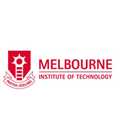Master of Data Analytics – Major in Software Engineering (Sydney)
Master of Data Analytics – Major in Software Engineering (Sydney)
The Master of Data Analytics (Major in Software Engineering) has been developed in consultation with a broad industry advisory panel. This major prepares students for a future career in various industries, because it capitalises on the intersection of two fast growing fields Data Analytics and Software Engineering. Graduates can play…
Categories
COURSE DESCRIPTION
The Master of Data Analytics (Major in Software Engineering) has been developed in consultation with a broad industry advisory panel. This major prepares students for a future career in various industries, because it capitalises on the intersection of two fast growing fields Data Analytics and Software Engineering. Graduates can play a crucial role in transforming businesses by applying their data analytics and software engineering skills.
The major in Software Engineering will prepare our students for the future market, studying units that focus on Software Engineering Fundamentals, Software Practice for Big Data Analytics, and Human-computer Interaction Design. They will gain an in-depth understanding of essential Software Engineering principles, Software Development Lifecycle models, Software Quality Assurance and Testing methodologies and Human-Computer Interaction. Students will learn to apply them to design and develop robust and tested software and applications. These can be used across a wide range of industries that deploy data analytics.
CAREER PATHS
A career in data analytics will give you great job prospects. Roles can include:
Business (Intelligence) Analyst
IT Systems Analyst
Credit Analyst
Corporate Strategy Analyst
Social Media Data Analyst
Operations Analyst
Marketing Analyst
Fraud Analyst
Applications Architect
Enterprise Architect
Data Architect
Data Scientist
LEARNING OUTCOMES
Graduates of this course will:
Apply modern software engineering principles and practices to meet the complex industry requirements in software systems for data analytics and other computing domains.
Analyse and evaluate existing and new software solutions in data analytics and other computing domains with demonstrated understanding of ethical standards and technological landscapes.
Design and develop quality-assured and secure software solutions in data analytics and other computing domains with cohesive understanding of software development life cycle.
Possess a body of knowledge taken from fields including Statistics, Applied Mathematics, Computer Ethics, Data Security and Privacy, Information Management and Machine Learning that is essential to both understanding and applications of contemporary and emerging Data Analytics principles and methodologies.
Be able to investigate and compare key data analytical technologies and assess their effectiveness for problem-solving and data protection in different application scenarios.
Demonstrate significant research, analysis and evaluation skills in the Data Analytics discipline, and exercise critical thinking and problem-solving ability to tackle complex real-world problems.
Be capable of independent professional work in data analytics project teams with an elevated level of autonomy and accountability.
Be able to collaborate and communicate effectively with different stakeholders of Data Analytics projects in a professional setting.
REQUIREMENTS
The MDA course is designed to encompass two streams, one for cognate and another for non-cognate students.
Cognate students are those that have an Australian Bachelor degree or equivalent in an Information and Communications Technology (ICT) discipline such as Computer Science, Computer Engineering, Information Technology and Software Engineering.
For the non-cognate stream, students must have an Australian Bachelor degree or equivalent in a non-ICT discipline. Because we have existing units that provide foundational ICT knowledge for our non-cognate students, we can accept a broader scope of students into our programs.
For entry you need to have:
Successful completion of Australian Bachelor degree or equivalent.
For the cognate stream: An Australian bachelor degree or equivalent in Information Technology or a related discipline such as computer science, software engineering, computer engineering or networking.
For the non-cognate stream: An Australian bachelor degree or equivalent in any other discipline.
English Language Requirements
IELTS (Academic) 6.0 with no band less than 6.0 equivalent.
TOEFL iBT – Overall score 60-78 with minimum scores: Reading 12, Listening 11, Speaking 17, Writing 20
PTE Academic – Overall score 50 with (no score less than 46)
Cambridge CAE – CAE Score of 169 (no band less than 162)
EDUCATIONAL INSTITUTION
Established in 1996, MIT has provided degrees in leading industries since its inception. MIT offers undergraduate and postgraduate courses in business, business analytics, networking, cyber security, data analytics and software and telecommunications engineering. MIT’s courses include tactical industry projects and internships. The institute has relationships with industries of all sizes and types, both profit and not-for-profit. MIT trains students in specialised skills that are in demand in the workplace so that graduates enter the workforce feeling confident they can succeed in a competitive environment. Students at MIT are guaranteed hands-on industry experience in every degree. Student care at MIT goes beyond what happens in the classroom. Student at MIT are given the support and taught the skills required to succeed in the real world. MIT’s English classes teach students to use English in a variety of social and personal situations.




